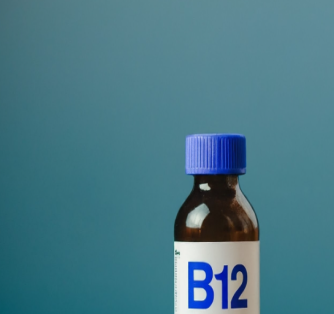Menu
Weight loss
Hormones
Sex
EXPLORE
MEET NU IMAGE MEDICAL
TREATMENTS
MEET NU IMAGE MEDICAL
TREATMENTS
MEET NU IMAGE MEDICAL
B12 Injections: dosage, frequency, benefits, and duration


What Does a B12 Injection Do?
Vitamin B12, also known as cobalamin, plays a crucial role in various bodily functions, including nerve function, blood cell production, and DNA synthesis. A deficiency in B12 can lead to fatigue, weakness, numbness, tingling sensations, and memory problems. Individuals who follow a vegan or vegetarian diet or those with absorption issues are particularly at risk and may benefit from B12 injections to maintain optimal levels.
How Many Days Should You Take B12 Injections?
There's no one-size-fits-all answer to this question. The dosage and frequency of B12 injections depend on individual needs and the severity of deficiency. Typically, doctors prescribe a loading dose, which involves multiple injections administered close together, followed by maintenance doses to sustain adequate B12 levels over time.
How Long Does a B12 Injection Last?
The duration of B12 injection effectiveness can vary based on the type of injection administered (hydroxocobalamin, cyanocobalamin, methylcobalamin) and individual metabolism. While the initial effects may be felt shortly after the injection, B12 levels gradually decline over time, necessitating regular maintenance doses to sustain optimal levels.
Is it Okay to Get a B12 Shot Every Week?
It's essential to consult a healthcare professional to determine the appropriate frequency of B12 injections. While some individuals may require weekly injections initially to address severe deficiency, the frequency often decreases over time as B12 levels stabilize. Importantly, excessive B12 intake is not harmful, as the body excretes any surplus it doesn't need.
You may be interested in reading: Who is at risk of Vitamin B12 deficiency?
Potential Side Effects of B12 Injections
Common side effects of B12 injections may include mild pain at the injection site, diarrhea, itching, or swelling. However, serious side effects such as allergic reactions or heart failure in individuals with heart disease are rare but possible. It's crucial to monitor for any adverse reactions and seek medical attention if necessary.
Alternatives to B12 Injections
For individuals with mild deficiencies or as a maintenance option after injections, oral B12 supplements or sublingual B12 formulations may be suitable alternatives. These methods can help sustain adequate B12 levels and are often more convenient for long-term use.
Don't forget to consult your healthcare provider to determine if B12 injections are appropriate for you and to discuss the optimal dosage and frequency tailored to your individual needs.
This article is for informational purposes only and does not constitute medical advice. The information contained herein is not a substitute for and should never be relied upon for professional medical advice. Always talk to your physician about the risks and benefits of any treatment. Nu Image Medical may not offer the medications or services mentioned in this article.
